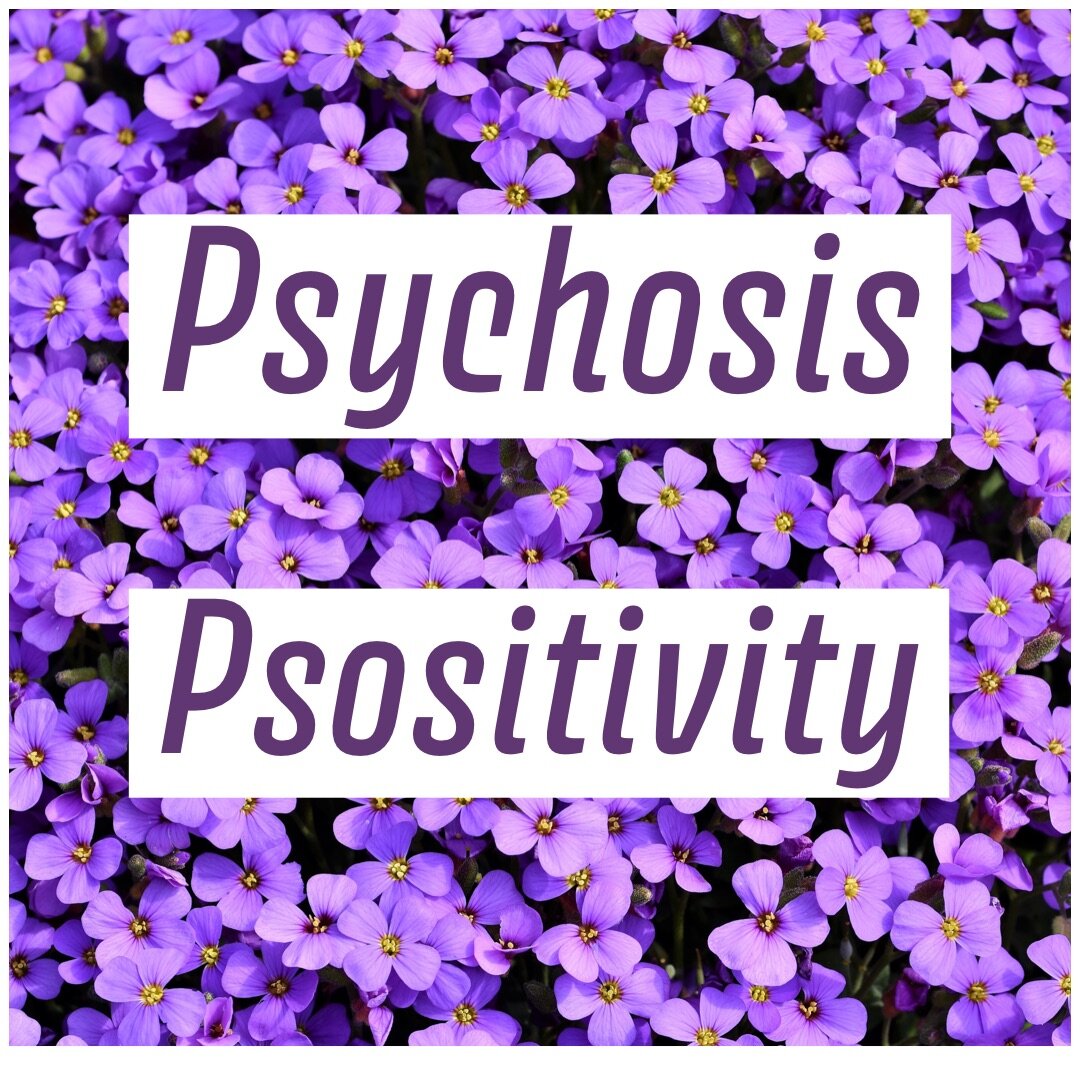I Don’t Fight Schizophrenia; I Am Schizophrenic
Trigger Warning: Suicide, Eating Disorder, Abuse Mention
How do you “fight” Schizophrenia? You see this terminology used sometimes, mainly by non-profits and non-Psychotic loved ones of Schizophrenics, and it always rubs me the wrong way for a variety of reasons (British Columbia Schizophrenia Society--Example). How do you fight something so integral to your own Neurology, and not lose? I tried to fight my body for a long time, and lost. Let me take you back in a little, and show you why I don’t “fight” my Schizophrenia anymore…
After my first big Psychotic episode in 2016, I was confused and disoriented. I was given medication and blamed when it didn’t work. Accused of not taking my medications. Accused of deception by my mother for not immediately speaking up when I still had Hallucinations on meds. Told I wasn’t trying and clearly wanted to be sick, clearly wanted to be dangerous.
Then I had another Psychotic episode. They put me on new medication. I had Schizoaffective with Bipolar 1 features at the time, misdiagnosed as unspecified Bipolar. The new Antipsychotic switch sent me into a Manic episode and I appeared to get better rapidly.
Then came the crash. An Episcopalian Priest stopped me from killing myself one lonely night in February 2017, and I was hospitalized.
Then, the people around me started to realize that this might be more serious than they had realized.
My psychiatric difficulties were presented to me as a fight, as a battle. Something I could go to war with, push down, and overcome. Something that could be chipped away at until a normal, pristine Rose was revealed underneath. Like the physical Disabilities I had spent years suppressing and pushing myself past the point of collapse to “overcome”, there was a Neurotypical wonderland awaiting me if I only worked hard enough. Surely there was.
I tried, but more and more symptoms revealed themselves. I developed Functional Neurological Disorder (FND), a Somatic Symptom Disorder where my Trauma and Anxiety manifested as paralysis, muteness, and pseudo-seizures. I developed Bulimia. My Psychosis became more intense and I dropped my Neurotypical mask—I didn’t have the energy to hold it up anymore. I switched between Rapid Cycling and Mixed States with few stable periods, creating often extreme and bizarre Psychosis. Fall of 2017, I had a breakdown during a take-home Honors Physics exam as I realized I could no longer do Algebra; my brain was completely unable to process that kind of information anymore. I applied for the Psychology major and dropped the class instead of finishing the exam. I earned no credits that semester. After leaving James Madison on medical leave in January 2018, I was hospitalized again for active suicidal ideation and shortly after my discharge, my Dissociative Identity Disorder (DID) became apparent.
I was accused of not fighting. Of giving up. I was told I needed to go into a long-term institution or I’d end up dead by a clinician. I didn’t understand why I couldn’t get better, I was fighting, fighting, I wanted to be better, to get better, to be a top student again—but the more I fought the further I fell.
I started with Ms. B, my current therapist, in either late April or early May of 2018. We started with Art Therapy for my DID and Trauma. I did painting, abstract painting with lots of swirls and long lines. My hands were bit better then than they are then, but they weren’t great. The style ended up being very useful, however, as the long, curvy strokes helped as a somatic therapy. Art Therapy was invaluable for me in. many ways, but one thing it did was teach me to reconnect with my body. I had become alienated from many of even the most basic bodily sensations and emotions, and was no longer at ease in my own self. Art Therapy allowed me to develop a new connection to my body and an acceptance of it and its thoughts and sensations. Ms. B also, in therapy, helped me analyze why I was resisting and being to stubborn to things, and why I was so judgmental in the ways that I was.
Reconnecting with my body and losing some of my highly judgmental and high-strung nature was a huge first step, and it led me to begin analyzing more. Why I had been treated the way I had been, for my brain and my Disabilities? Why I had had the experiences I had had in the Psychiatric System? I had to learn how to read again, and I chose my practice titles to be topics in Psychology/Psychiatry, which only go me thinking more.
I began to acknowledge my brain as my body, and I have accepted my body. Having a long history with disordered eating from a self-harming Alter in my DID, I have spent enough time hating my body (on top of the body issues I had from physical Disabilities as a teen). Learning about Schizophrenia and the Neurobiology and Genetics of Schizophrenia, I know this is Biological condition and it is just a part of who I am like my Blood Type is. The Neurodivergence Movement & Psychotic Community have been invaluable in building up my self esteem and self of self-worth & purpose; this is an ongoing journey. But this an intractable part of who I am. It has and will change over time, but that doesn’t mean its not a part of me. I’m not ashamed to be Schizophrenic, and I’m not going to be at war with myself any longer. I’m done fighting a battle that I can’t win. Self love has saved me in many ways, and I hope that I can help other understand that they are not broken either. It’s okay to be Disabled, it’s okay to be different, it’s okay to be us.
I Look Forward To Reading Your Comments On The Instagram Post!
@PsychosisPsositivity
